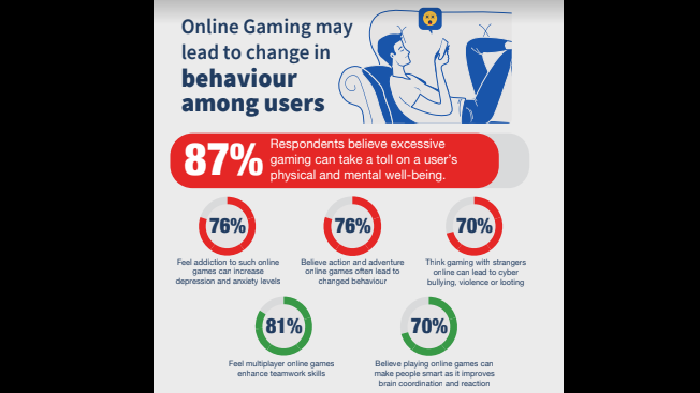It is true that the Coronavirus has made a catastrophic change in everyone’s life and the most effective way right now to fight it is to stay at home and avoid going outside unnecessarily. During the stay at home period in India many engaged into something new and among all others online gaming has been the one which attracted a lot of traction in Indian during lockdown like never before. From user engagement, to download rate to new users to DAU, surged tremendously that a major chunk from the gaming sector started expecting that gaming is transforming as a mainstream. Thus accessing anyone’s digital identity and activity is easier today and therefore it can be easily compromised today. NortonLifeLock, a cybersecurity expert unveiled the results of the third edition of its India Digital Wellness report – an online survey of over 1,500 city-based Indian adults, which explores the growing popularity of online gaming among smartphone users in the country.
“People could be drawn to online gaming for entertainment, but data shows that it is not all about fun and games. The virtual playing field comes with risks such as identity theft, cyberbullying, phishing, and credit card theft, to name a few.It is interesting to note that children follow the same patterns as their parents when it comes to online gaming. Therefore, it becomes extremely important for parents as well as children to be educated about the threats that can compromise their safety and privacy in this complex digital world. ‘Play well and stay safe’ seem to be the new mantra in these challenging times,” said NortonLifeLock, India director Ritesh Chopra.

According to the survey here are the findings:
- 87 per cent of respondents believe that gaming takes a toll on their physical and mental well-being.
- Females and GenX dominate the online gaming space- 88 per cent of female respondents and 92 per cent GenX respondents find online games to be the best pastime.
- Cities like Delhi, Lucknow, Chandigarh, Bhubaneswar tend to give more preference to online gaming than to social engagements.

- 76 per cent of respondents said action and adventure games can lead to changed behavior; and addiction to such games can increase depression and anxiety.
- Children and parents tend to have a shared behavior when it comes to mobile gaming; six in every 10 respondents said that they and their children spend roughly the same amount of time playing games online.
- 70 per cent respondents feel that playing online games makes them smarter by improving hand-eye co-ordination and also enhances teamwork skills.
- Almost 73 per cent of the parents in the survey say that their children prefer shooting and adventure games, while 21 per cent say that their children show a preference for casino and card games.
- There is a sense of growing concern among parents as 45 per cent of respondents say they find it difficult to control their children’s smartphone usage.
- 81 per cent of the respondents who put a check mechanism on children’s usage of smartphones feel they have not been effective in controlling the gaming time, as the children of 42 per cent of these respondents play games online for more than two hours every day.
- However, online gaming seems to have some positive impact, too, on users. About 81 per cent of respondents feel that multiplayer online games enhance teamwork skills, while 70 per cent of respondents feel that playing online games can make people smarter, as they improve brain coordination and reaction.
- About 93 per cent of respondents in Lucknow and 90 per cent of respondents in Bhubaneswar provide their children with access to play online games as compared to 85 per cent of respondents in Delhi/NCR, 78 per cent respondents in Mumbai and 76 per cent respondents in Bangalore.
- 96 per cent of respondents in Lucknow, 93 per cent of respondents in Chandigarh, and 89 per cent of respondents in Bhubaneswar consider online gaming to the best pastime as compared to 87 per cent of respondents each in Delhi and Mumbai, and 91 per cent of respondents in Bangalore.
- Respondents in metros, Tier-1 and Tier-2 cities show a similar pattern, preferring online games to social gatherings or outings – Delhi (81 per cent), Mumbai (70 per cent), Bangalore (66 per cent), Lucknow (79 per cent), Chandigarh (68 per cent) and Bhubaneswar (70 per cent).
